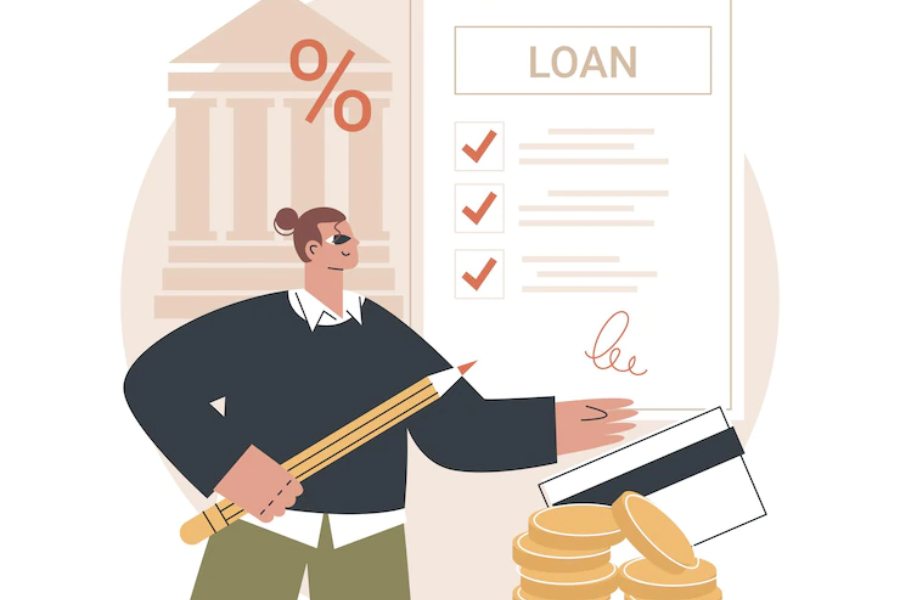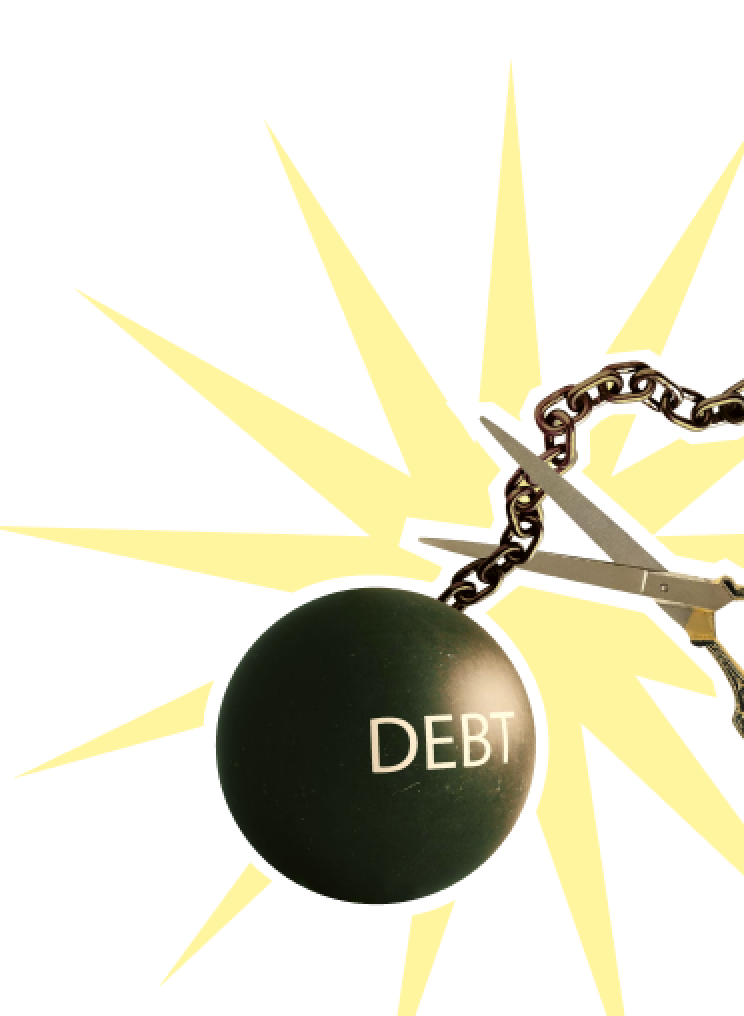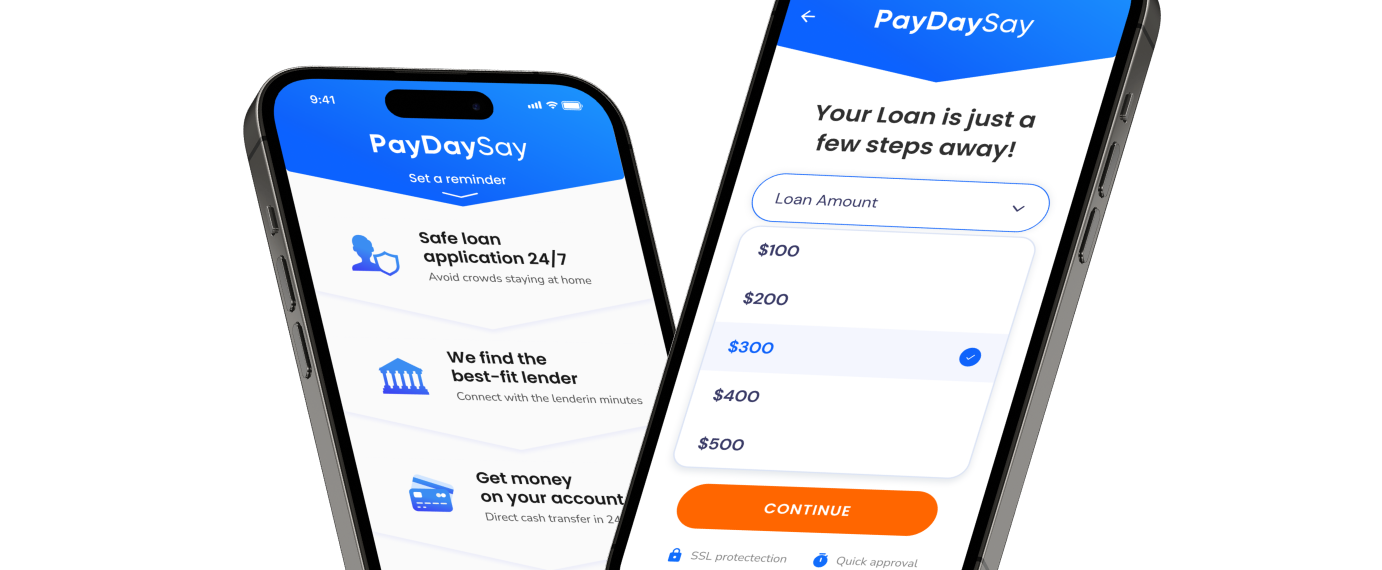A personal loan is one of the major ways people get finance for their purchases, events, bills, and emergency funds. But one is the most creative way for credit card debt consolidation.
It often offers a reasonable interest rate on your debt than a credit card. Suppose you need help sorting your credit card debts. Or you wish to avoid late payment fees. Taking out a personal loan might be the right solution. So, why not?
Personal loans can help you consolidate your balance without the burden of high APRs. It can also help keep your monthly payments fixed rather than sorting multiple debts every month. However, like every other loan, drawbacks can affect your finances. Hence, here’s a comprehensive guide on personal loans and how you can put them to good use.
What Is Personal Loan?
Those extra funds people can access when they run out of cash are financially tagged as Personal Loan. Unlike credit cards, personal loans allow you to access a one-time fund and pay in installments. So, rather than get the extra cash when you need it, you’ll only get it once to fulfill whatever you need.
Like any loan, you’ll be required to pay a fee or interest rate to the creditor. Likewise, there is often a lifetime to make a full repayment, known as the loan term.
Hundreds of creditors offer a personal loan, and you can easily get one as fast as 10 minutes online. Some are secure (require collaterals), while others are unsecured (don’t require collateral), depending on the creditor.
There are various reasons you need to collect a personal loan. Generally, it’s to meet personal demands such as payday loan debt consolidation, medical bills, home renovations, vacations, and emergencies.
Why Use Personal Loan to Pay Off Credit Card Debt?
You can put a personal loan to many uses. But one of the smartest ways people use is to pay off credit card debts. That’s because debts on your credit cards can easily hurt your score if you don’t pay when due, which is usually for a billing cycle of one month. Since they can give you the liberty of paying over a longer period, you can pay off when you take a personal loan.
You should get a personal loan to clear off your card debts. We’ve discussed some of them below. So ensure you go through each and figure out which one applies to you. And if it’s actually worth the trouble before you apply for one.
Paying Off Credit Card Debt In Full
If you’re new to credit card repayments. Then you should know that defaulting on payments can affect your score. But when you take a personal loan, you can calculate the amount you need to pay in full. After borrowing this fund, you can pay in full and clear off your credit card debt.
This way, you avoid incurring more interest or being charged extra fees. You’ll be able to boost your credibility with card issuers as well since it reduces your credit utilization rates (CUR). And keep your financial history free of dents for future purposes.
Lower Interest Rate
You can get a good bargain on APRs with a personal loan than credit cards. The latter charges variable rates, while the former often charges a fixed rate. The longer it takes to repay, you might have to pay extra fees on your borrowed fund on cards. So, sorting the debt with a personal loan is beneficial.
Ultimately, you solve the problem of extra interest charges while you pay off your loan at a fixed rate and longer period. It’s icing on the cake because personal cash advances also give you lower APRs. So, you don’t only get fixed rates but will also get reduced fees to pay.
One Monthly Payment
You can create a personal billing cycle when you use a personal loan. Rather than pay off your debts multiple times a month, you can agree with the creditor to pay once a month (the general term for most lenders).
Although this might seem irrelevant, it can save you time and space for other things. It will reduce the fees you pay on multiple transactions that month. Repaying once a month can help you create a budget for the month and build a healthy financial life.
Improving Credit Score
This is a good reason you should consolidate your debt. Defaulting on credit card debts can affect your history, especially if the issuer reports to credit bureaus. So, an early payoff loan is the best way to keep things safe.
But, if you don’t have enough funds to repay your debt, you can always take out a personal loan. You can keep your credit cards clean and payoff loan every month. This can help build your score since it lowers CUR and keeps your history green.

How to Pay Off Credit Card Debt With Personal Loan
Of course, taking a personal loan is a good decision. But there are steps to take before and after for effective usage. There are valuable information and important features to consider before choosing which creditor to bank with. Or what fees to look out for when selecting.
Hence, we’ve compiled a step-by-step guide to help you consolidate your card debt with a personal loan below. Kindly take the time to review each of them before taking the big, bold step.
Prequalify and Apply
The first step to kick off your debt consolidation journey is to her a rate quote. Here, the goal is to determine if you’re eligible and how much you can access. You can easily do this on the lender’s website, which takes just a few minutes.
Many cardholders need to pay more attention to the types of checks done by the creditor. But make sure you only apply to lenders that only do soft checks to avoid denting your credit history with hard checks.
Once you prequalify and know your eligibility status, you can write a formal application. This process requires hard checks, but mostly worth it because you’ve already been prequalified. It minimally affects your score, but it’s only temporary if you get the extra fund and repay it promptly.
Choose The Best Loan
Carefully selecting a loan is an important step you should always pay attention to. There are hundreds of options to choose from. It may seem overwhelming. But there are certain features you can look for in the best lenders.
An ideal payoff loan shouldn’t charge you high APRs. Always opt for lenders that keep their APRs lower than their competitors. Consider the repayment term and flexibility. Other features include processing fees, hidden fees, waiting periods, customer service, etc.
If any lender meets your satisfaction in all these areas, you can consider it. So, please list the best options and lenders that stand out with their features. Compare each of them to reach a desirable offer.
Verify Information
Once the lender has received your application and decided to borrow the sum; the next step is verifying your identity. Even though you’ve provided everything to get verified, you still need a verification process. The lender wants to confirm you’re who you are, not just a scam or prank. So, the process can be online or physical.
The lender can send a representative to check your residence or workplace to see if you truly love or work there. Depending on the creditor, you might also have to provide documents like your driver’s license, PAN card, SSN, passport, etc. Sometimes, a visa or Individual Taxpayer Identification Number (ITIN) will be enough for verification.
Get The Money
After a successful verification, you’ll be able to receive your extra cash amount. However, after verification, you might need to sign some documents that include all the loan details. Signing this means you agree to the terms and conditions of the lender. Ensure you go through the document before agreeing.
You won’t need to sign a document if it’s online. Once you check the box for the T&C agreement, you’re good to go.
The cash advance disbursal follows this process. You’ll therefore get the money in your provided account within a few minutes to days, depending on the lender and the payment method provided. Once you get your fund credited, you can immediately complete the card debt payoff.
Repay Credit Card Debt
The amount you receive from your cash advance should reflect how much debt you want to consolidate. You should apply for amounts higher than your debt. So, when you get the fund, you can use them to fund your credit cards.
Ensure you fund the cards early. Early payments can help you leave a good impression on your history and avoid paying additional charges for late payments. If you have multiple cards you want to consolidate, ensure you fund each. Keep the debt consolidation under a single personal loan to keep one fixed monthly payment and easily get the advance paid off.

What to Consider Before Using a Personal Loan to Pay Off Credit Card Debt
Taking a personal loan is a serious business. It could be the difference between clearing your debt or running into more debt. Aside from the tendency to create more debt profiles, you might also have to pay off some fees. It is counterproductive to receive a cash advance with high APRs when your initial intention is a credit card debt payoff that threatens to accumulate high interest on your cards or accounts.
To help you look out for these subtle but important factors. Below are some major reasons you should think twice when receiving a personal loan for your credit card debt consolidation.
More Debts
Consider a credit card debt consolidation to reduce your debt profile or avoid high interest. But this would be futile if you pay off the cards debts and carry those balances again. In this case, you’ll worsen your debt profile because you’re stacking up your account with more debts than before.
A way around this is to ensure the personal cash advance amount can clear the whole debt. So, when you pay off the card debt, you’ll have nothing on your tab. You’ll only have to focus on the personal loan you took, which is easier to pay because you can spread it over a longer period.
Fees of Personal Loans
A personal loan lender might charge you for its services in various ways. One of the most popular ways is through origination fees. This is the amount of money you pay upfront to receive the loan. Depending on the lender, it typically ranges between 1% to 10% of the borrowed amount.
You might also have to pay application fees, processing fees, late fees, etc.
Hence, the goal is to ensure you can afford these charges before applying. Try to opt for lenders that only charge one of these fees or don’t charge any. That way, you can keep your expenses minimal and still receive a full fund from your application.
High APR
They often have APRs of around 10%. But some of them can charge as high as 30%. You must pay attention to the charges of your preferred lender before applying. Generally, unsecured debt tend to have higher figures because the lender has no security. You could be charged high APRs if the lender doesn’t charge any fee.
To avoid this, you should apply for secured cash advances. Since the creditor will have collateral, you will likely get lower figures. Also, find lenders with a small fee to pay, which can reduce the percentage. Your financial history can also influence the APR, credit score, and repayment term.
Alternatives to Personal Loans For Paying Off Credit Card Debt
Of course, a personal loan is not the only way to sort out your credit card debt. Various reasons might result in your disinterest in a personal loan. Aside from having to put up with APRs or escaping one debt to enter another, you might also not like the processes required to get personal cash advances.
In that case, you have various alternatives, some of which are easier to get, while others can prove quite difficult. Each of them have special features and reasonable scenarios it’s advisable to use them. Below are some alternatives you have and important information to know about them.
|
Alternative |
APRs |
Credit-report |
Repayment term |
|
Balance Transfer Credit Card With 0% APR Offer |
0% |
Yes |
15-18 months |
|
Home Equity Loan |
5-15% |
Yes |
5-30 years |
|
Peer-to-Peer Loan (P2P) |
varies |
No |
varies |
|
401(k) Loan |
4-6% |
No |
5 years |
Balance Transfer Credit Card With 0% APR Offer
This is a smart strategy for debt consolidation. It allows you to move your debt from one account to another. The aim is to benefit from an introductory APRs offer of 0%. So, you won’t accrue any interest when you pay off your debt within this period.
This way, the cardholder transfers their debt balance to a new lender, pays off their credit card debts, and utilizes the 0% intro APRs while they repay. It’s a great option if you are okay with having more than one credit card account. It’s also advisable if you have a reliable lender that doesn’t charge you extra fees.
Pros
Cons
Home Equity Loan
A home equity loan is a secured cash advance using your home as collateral for borrowed funds. It is similar to personal equity loans because it allows you to receive up to the agreed amount. The lender assesses your house to appraise it and find its worth, which can affect your borrowing limit.
For example, if the house is worth $200,000 with a mortgage of $100,000, you have an equity of $100,000.
It’s a good option because it allows you to borrow higher amounts than personal loans. It’s also a great way to cut your expenses on interest rates since it offers lower APRs. It’s ideal for anyone who owns a home, wishes to access high amounts, and is okay with signing loads of paperwork.
Pros
Cons
Peer-to-Peer Loan (P2P)
As the name implies, peer-to-peer lending is a unique type of loan. Unlike a personal loan, it’s not funded by banks or lending institutions. The fund is provided by individual investors instead. So, these individual investors can earn extra funds on their money while the borrower gets the fund they need. So, it’s a win-win situation for the lender and borrower.
The lending marketplace determines the borrower’s eligibility based on the information they provide. The potential investors review the application process and decide whether they’d fund it. Therefore, it’s only sometimes a reliable place to secure a cash advance.
Pros
Cons
401(k) Loan
This is a good way to get extra cash if you need help with traditional options. It’s a fund you receive from your employer’s sponsored retirement plan. The process doesn’t require you to meet any credit score quota; you won’t need to provide too many documents for approval, either. So, you can easily get it if you find it difficult to get approved for others.
However, it has its sour points too. You might need to pay tax twice when you borrow from your 401(k) account. You might also be charged extra tax if you stop working with your employer and only repay part of the sum within three months.
Pros
- Easy application and approval process
- Interest goes back into your 401(K) account
- High credit score isn't needed for approval.
Cons
- You could lose your retirement savings
- Borrowers will pay double the tax.
Conclusion
Clearing your debt balance is a simple task, but finding the right channel to fund the repayment can be pretty difficult. If you’ve decided to go with a personal credit method, you’ve probably made the right choice especially if you have multiple debts to clear.
In summary, you should ensure you opt for the most appropriate lenders with the most suitable features. Look for hidden fees, APRs, repayment terms, terms and conditions, etc. before you decide to bank with them. Also ensure that the amount you request is perfect for the repayment to avoid leaving debt balances because this defeats the whole purpose.














 on your homescreen
on your homescreen